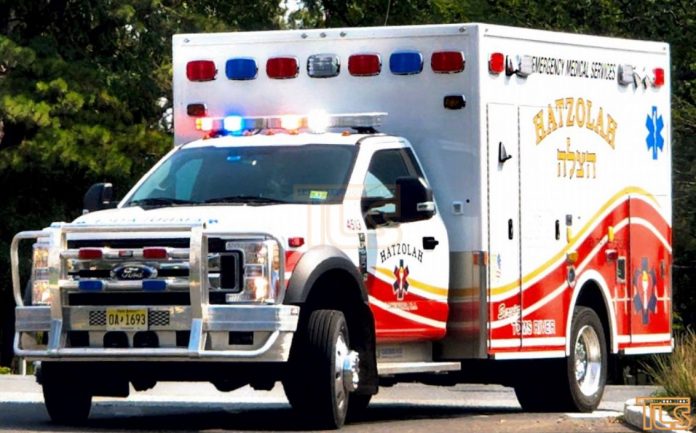Chalilah, you had an emergency stent operation or a heart attack r”l. And you haven’t been eating well until now. This is what you should be doing as soon as possible. Realize that now you have a whole slew of Mitzvos in eating properly – more on this at the end. But, in the meantime – follow the following emergency post-heart attack diet:
- After Davening – for Breakfast – switch off between oatmeal and egg whites for breakfast. Use pepper and a product called NoSalt. Then drink two glasses of water. You can put some lemon in it for flavoring.
- For your morning snacks switch off between cut-up apples and cut up carrots and celery. Have two more glasses of water.
- For lunch – eat fish without frying it. Grill it or bake it. Have 1 more glass of water
- For afternoon snack switch off between brown rice and wild rice. Have 1 and ½ more glasses of water
- For dinner have a lean piece of chicken with some positive or bodek green veggie and quinoa.
A heart attack is a serious medical event that not only requires immediate attention and treatment but a serious meal planning consult with the foods you like. After a heart attack, it is quite urgent to follow a healthy diet to support the healing process and prevent future heart attacks.
Here are six general guidelines for a healthy diet after a heart attack – if you want to do it on your own:
- Emphasize fruits, vegetables, and whole grains: These foods are high in fiber, nutrients, and antioxidants, which can help lower cholesterol and blood pressure and improve overall heart health.
- Aim to consume at least 5 servings of fruits and vegetables per day, and choose whole grains such as quinoa, oats, and brown rice over refined grains like white bread and pasta.
- Either eliminate or seriously limit saturated and trans fats: These types of fats are found in animal products such as fatty meats and full-fat dairy, as well as fried foods and processed snacks. Consuming too much of these fats increases your risk of another heart disease, chalilah. Instead, opt for healthy fats like olive oil, nuts, and avocados.
- Reduce sodium intake: High levels of sodium can raise blood pressure, which increases the risk of further heart disease. Limit your intake of salty foods like processed meats, soups with salts, and snack foods, and choose fresh or frozen vegetables and lean protein sources instead. A wide woman used to say, “If you can’t read it – don’t eat it.” Boruch Hashem, she still says it, because she eats healthy.
- Stay hydrated: Drinking enough water is essential for maintaining good heart health. Aim for at least 8 glasses of water per day, and avoid sugary drinks like soda and juice.
- Choose lean protein sources: Protein is important for healing and repairing tissues after a heart attack. However, it is important to choose lean sources of protein like chicken, turkey, fish, and beans, rather than high-fat meats.
And now the Mitzvos:
There are, as mentioned earlier, a number of Mitzvos involved in these safety inspections. This author believes that there is six.
- There is the Mitzvah of “veNishmartem me’od b’nafshosaichem (Dvarim 4:9) – the Mitzvah of protecting our health and well-being.
- Few have heard of the second Mitzvah. The verse later on (Dvarim 4:15), “Rak hishamer lecha” is understood by most Poskim to actually comprise an actual second Mitzvah (See Rav Chaim Kanievsky zt”l Shaar HaTeshuvos #25) – to take special care.
- There is a third Mitzvah, “V’Chai Bahem – And you shall live by them” (VaYikra 18:5).
- There is a fourth Mitzvah found in the verse in Parshas Ki Taytzai (Dvarim 22:2) which discusses the Mitzvah of Hashavas Aveida, returning an object, with the words “vahashaivoso lo – and you shall return it to him.” The Gemorah in Sanhedrin (73a), however, includes within its understanding of these words the obligation of returning “his own life to him as well.” For example, if thieves are threatening to pounce upon him, there is an obligation of “vahashaivoso lo.” In other words, this verse is the source for the Mitzvah of saving someone’s life. I believe this is the general mitzvah the Shulchan Aruch refers to in Shulchan Aruch Orech Chaim 325.
Lo Saamod Al Dam Rayacha – There is a fifth (a negative Mitzvah) of not standing idly by your brother’s blood as well. This is mentioned in Shulchan Aruch (CM 426:1) and in the Rambam. This includes yourself and your spouse and children too, by leaving them without you, chalilah.
And finally, there is a sixth Mitzvah of – “Lo Suchal l’hisalaym – a negative commandment associated with the positive commandment of Hashavas Aveida, and that is the verse in Dvarim (22:3), “You cannot shut your eyes to it.” This verse comes directly after the Mitzvah of Hashavas Aveidah. The Netziv (HeEmek Sheailah) refers to this Mitzvah as well.
By following these six plus six guidelines, you can help support your recovery and improve your overall heart health and be mekayem many new Mitzvos too. Remember to also talk to your doctor or a registered dietitian for personalized nutrition recommendations and to address any specific dietary needs or concerns.
The author can be reached at [email protected]


NoSalt can be an issue with certain BP meds or with kidney problems. Use Mrs. Dash instead.
A good diet and exercise go a long way to help prevent a heart attack. That being said, get your medical advice from your physician. Have an annual physical discuss your health risks in person with your medical provider and learn how to mitigate them.
Oh and Yair NoSalt used in combination with some meds can lead to death.